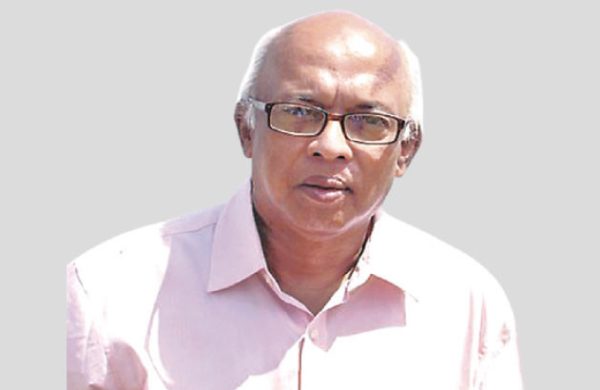Revamping bureaucracy: How to get rid of political patronage?
- Update Time : Friday, December 20, 2024

–Mohammad Kamrul Hasan–
Bureaucracy serves as a fundamental mechanism of governance, particularly in developing nations such as Bangladesh, where state institutions are tasked with the responsibilities of development, service provisions, and maintaining societal order. Nonetheless, these bureaucratic systems are susceptible to the detrimental effects of political interference, which can result in inefficiency, corruption, and a decline in public trust. To effectively reform the bureaucratic framework in Bangladesh, it is essential to reduce the political influences that compromise its independence.
To comprehend the impact of political interference on bureaucracy, it is important to utilize significant theoretical models from public administration and political science. Max Weber’s foundational theory of bureaucracy advocates for a system grounded in rational-legal authority, where bureaucracies function according to established hierarchies, regulations, and merit-based principles. In this paradigm, bureaucracies are expected to operate independently of political pressures, making decisions based on objective criteria rather than personal connections or political favoritism.u
The bureaucratic issues faced by Bangladesh can be interpreted as departures from the Weberian model — with the erosion of bureaucratic autonomy, the prevalence of political favoritism, and the practice of assigning bureaucratic roles as rewards for political allegiance. Consequently, reform efforts must focus on turning these factors around.
The principal-agent theory offers a valuable framework for analyzing the dynamics between politicians (principals) and bureaucrats (agents). Ideally, bureaucrats should implement the policies established by elected officials while retaining the discretion to determine the methods of execution. In Bangladesh, this relationship is compromised by significant political interference, with politicians exerting undue influence over bureaucratic operations.
The “principal-agent” problem emerges when bureaucrats prioritize their own interests or succumb to the pressures of political elites, rather than acting in the public’s best interest. Additionally, “agency loss” manifests when political meddling undermines bureaucratic performance, leading to inefficiencies, corruption, and the establishment of patronage networks. To mitigate these challenges, it is essential to implement reforms that enhance mechanisms for bureaucratic accountability to the public, rather than to political figures, while also granting bureaucrats the necessary autonomy to operate effectively.
In Bangladesh, the relationship between politics and bureaucracy is characterized by entrenched patronage systems that sustain political dominance over state institutions. A variety of factors contribute to the current state of affairs. The political landscape in Bangladesh has been characterized by clientelism, where political parties allocate public sector positions and resources as incentives for loyalty. This fosters a “patron-client relationship,” compelling civil servants to prioritize the interests of their political superiors over those of the public.
Moreover, bureaucratic appointments frequently serve as rewards for political allegiance. The principles of meritocracy inherent in Weberian bureaucracy are significantly compromised, resulting in the appointment of less qualified individuals to critical positions, thereby diminishing institutional effectiveness. Furthermore, the frequent politically motivated reassignment of bureaucrats to less desirable roles or their promotion based on political connections exacerbates the situation.
Additionally, the entrenchment of political elites in key bureaucratic roles blurs the lines between political authority and administrative functions. Such a decline in bureaucratic independence heightens the potential for corruption and inefficiency, as bureaucrats may prioritize political objectives over the public interest.
In Bangladesh, the concept of “neutral competence” within the bureaucracy, which is intended to ensure impartiality amidst political fluctuations, is severely undermined. The politicization of the bureaucracy leads to several adverse outcomes. Bureaucrats often prioritize satisfying political leaders over the effective delivery of public services. This situation can result in the misappropriation of resources, bribery, and various forms of misconduct. Additionally, the influence of politics diminishes the accountability of bureaucrats to the public, redirecting their loyalty towards political patrons and eroding public confidence in the system.
To reduce political influence within the bureaucracy of Bangladesh, it is essential to adopt global best practices that are grounded in the Weberian tradition and principal-agent theory. A highly effective strategy to mitigate political interference is the institutionalization of merit-based recruitment, as exemplified by nations such as Singapore and South Korea.
Singapore’s Public Service Commission operates independently to oversee recruitment, ensuring that only the most qualified individuals are selected for civil service roles through competitive examinations and performance assessments. Similarly, South Korea has achieved a depoliticized bureaucracy through a transparent examination process, where positions are filled based on qualifications and test results rather than political connections.
By enhancing the independence of the Public Service Commission (PSC), Bangladesh can promote merit-based recruitment effectively. Additionally, implementing performance-based promotions will help eliminate the practice of using bureaucratic positions as political rewards.
By ensuring that bureaucrats have fixed tenures, political interference in their postings and transfers can be minimized, allowing them to concentrate on their responsibilities without the threat of political retaliation. India has made efforts to introduce such safeguards through fixed tenures and civil service boards that oversee and approve transfers and postings.
Kenya has introduced minimum tenures and independent service commissions to ensure bureaucrats are not easily removed from positions due to political whims. Instituting fixed-term appointments for senior civil servants, protected by legislation, can ensure greater bureaucratic autonomy. An independent board could be established to oversee transfers and promotions based on transparent criteria, reducing political manipulation.
Institutionalizing civil service codes and oversight mechanisms is also important. The UK operates under a legally enshrined civil service code that mandates neutrality, impartiality, and integrity among civil servants. This code, supported by a Civil Service Commission, ensures that civil servants are not subject to political pressures and can act in the public interest. Likewise, Bangladesh could adopt a civil service code emphasizing neutrality, public service, and accountability. Creating an independent body like the UK’s Civil Service Commission or New Zealand’s State Services Commission would provide oversight and ensure adherence to these standards.Furthermore, strengthening performance-based accountability is crucial. Performance contracts and evaluation systems ensure that bureaucrats are held accountable based on their output and service delivery, rather than political allegiance. Rwanda’s performance contracts hold civil servants accountable for specific targets and development outcomes. The system promotes accountability by emphasizing performance metrics, thereby minimizing political interference. Implementing performance-based contracts for senior civil servants, evaluated on quantifiable outcomes, could lead to a more efficient and accountable bureaucracy in Bangladesh.
Efforts to reform the bureaucracy to curtail political influence may face opposition from political elites who benefit from existing patronage systems. Additionally, capacity constraints pose a significant challenge; the civil service in Bangladesh requires adequate capacity-building to effectively implement performance-based systems and maintain meritocratic principles in recruitment and promotion.
Despite these hurdles, advancing requires robust political will, institutional reform, and a dedication to professionalizing the bureaucracy. By removing political influences from the civil service, Bangladesh can improve the efficiency, transparency, and accountability of its bureaucratic institutions, thereby establishing a system that prioritizes public service over political interests.
(Dr Mohammad Kamrul Hasan is a Public Administration and Public Policy Researcher.)



















